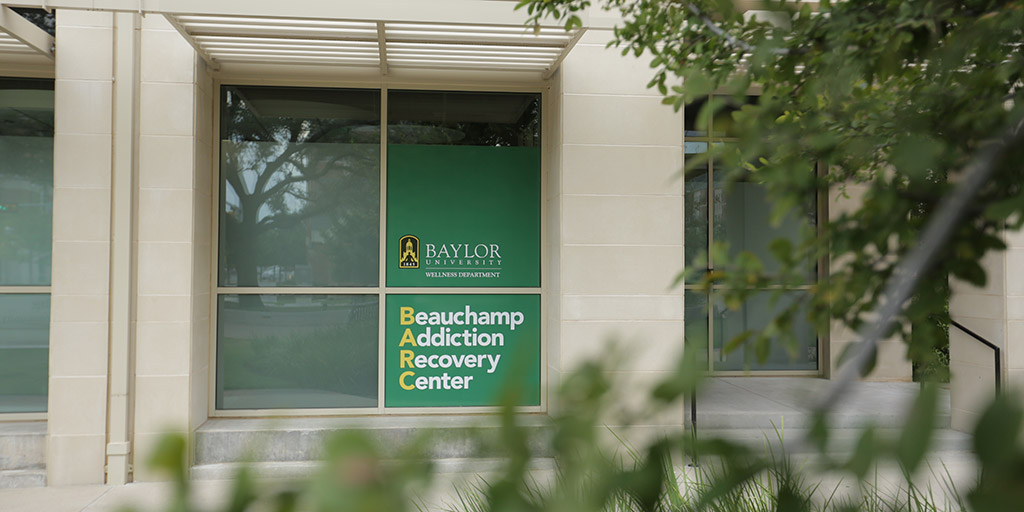Baylor addiction center creating a model for combining religion & recovery

For decades, many have struggled with the idea that faith plays a part in addiction recovery. At Baylor’s Beauchamp Addiction Recovery Center (BARC), religion and recovery go hand in hand.
“Instead of buckling under the pressure, Baylor is establishing a model for other faith-based organizations attempting to bridge the gap between addiction recovery and religion,” writes TheFix.com, a site dedicated to issues of addiction and recovery.”
The BARC launched in 2017 and immediately began providing both support services for students who are in the initial stages of identifying addictions, and continued support for students who have completed rehabilitation programs.
“The BARC has been a place where students can talk about their struggles with alcohol, drugs, gambling, and virtually anything else,” says Lilly Ettinger, BA ’11, MDiv ’15, BARC’s assistant director of wellness recovery. “We’ve been consistently blown away by the response we’ve had from students, other faculty and staff, and our alumni community.”
At its core, the center is designed to support students in recovery through various levels of support, like SMART, Recovery Ally, and 12-step programs. But those working for the BARC saw a unique opportunity to erase old stigmas and bridge the gap between addiction recovery and religion.
“It’s definitely complex and complicated tackling religion and addiction recovery. Sometimes we have to be more vocal about our non-religious approaches, rather than our religious approaches,” says Stanton Corley, MACM ’18, BARC’s recovery support coordinator. “We’re trained to empathetically enter whatever space the student is in and introduce steps they’re comfortable with.”
Professionals at BARC focus on creating a safe and encouraging atmosphere for those needing help. Each individual meeting with a student ends with a few questions regarding the student’s religious beliefs. For some, faith can be part of the healing process; for others, a painful religious upbringing might be part of the problem.
“At the end of the day, we just want our services to reflect the university’s values as a Christian community,” says Ettinger. “We firmly believe that everyone is made in the image of God and deserves respect, and that respect opens so many doors to a healing and trust building environment.”
“Because my faith is so important to me, I want to see humility and courage on both sides,” adds Corley. “I want the recovery community to have the courage to see the importance of religious organizations and institutions and try to understand the hope and good they provide for some people.”
The BARC’s approach just may be encouraging religious organizations to became a part of the recovery conversation moving forward.
Sic ’em, BARC!

